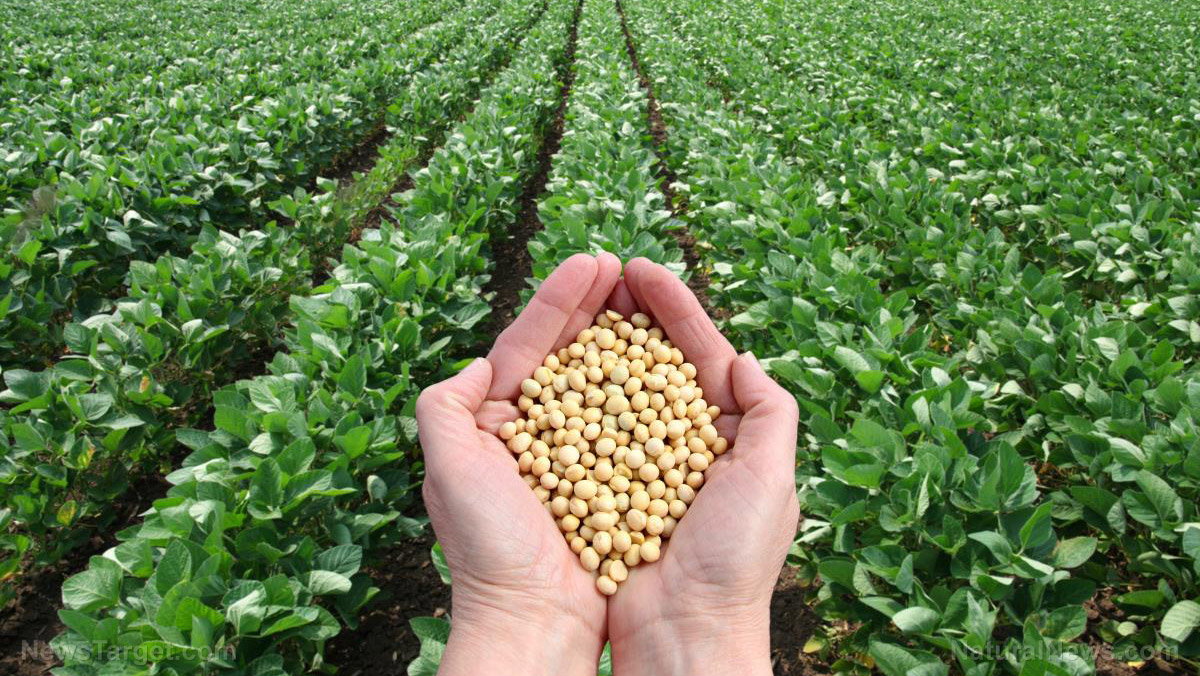Organic fertilizer found to promote more rapid plant growth in soybeans
10/31/2018 / By Carol Anderson

Researchers from Brazil have found that the growth of soybeans is made significantly higher by organic fertilizer. The study, published in the journal Applied Research and Agrotechnology, looked whether it was possible to confirm the use of certain waste products as fertilizer.
- Using a randomized block design, they tested four different treatments to see how each one of them will affect the growth of soybean plants.
- The study was conducted in an area in the midwest of Paraná State, Brazil where there were zero tillage and crop rotation.
- The four kinds of treatments and dosage used were: control; organic mineral fertilizer, NPK fertilizer (20N-20P-10K) plus 25 percent chicken manure dose of 600 kilograms per hectare (kg ha-1) at sowing; organic fertilizer chicken manure dose of 2000 kg ha-1 at sowing; NPK 02-20-10 fertilizer at a dose of 800 kg ha-1.
- During the experiment, researchers closely monitored the effect of the treatments on the following factors: height of plant at flowering stage and grain filling, the height of the first pod that grew, yield, thousand grain weight, number of pods per plant, and number of seeds per pod.
- According to results, the doses of organic-mineral fertilizer and organic chicken manure were more effective in promoting the plant’s growth. These fertilizers helped the plants grow more pods, as well as the number of pods that have two or three seeds inside.
- However, the research also found out that the use of such fertilizers does not affect the increase in soybean yield.
In conclusion, the wastes produced in chicken production are effective fertilizers, particularly in soybeans.
Read the study in full at this link. (in Spanish)
Learn more about organic farming and its benefits at Harvest.news today.
Journal Reference:
Júnior AO, Seidel EP, Rampim L, Neto AJA, Coppo JC. COMPONENTS OF PRODUCTION AND YIELD OF SOYBEAN WITH MINERAL, ORGANIC, AND ORGANIC-MINERAL FERTILIZERS. Applied Research & Agrotechnology. 2016;9(2):27–36. DOI: 10.5935/PAeT.V9.N2.03
Tagged Under: agriculture, chicken manure, crop rotation, crop yield, eco-friendly, farming, Fertilizers, green living, organic fertilizers, Soybeans




















